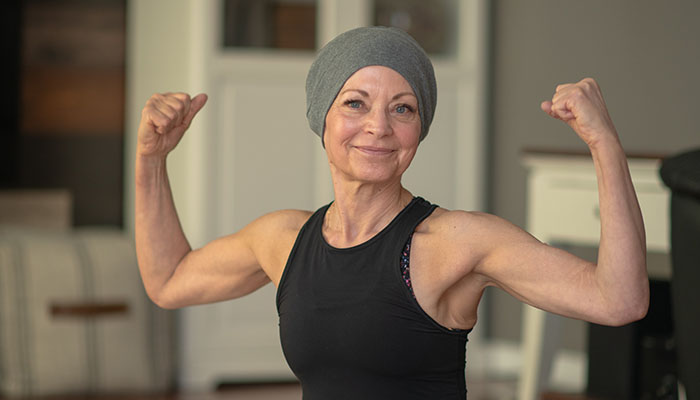Exercise helps cancer recovery
Hester Hill Schnipper, LICSW, OSW-C Program Manager Emeritus, Oncology, Social Work
NOVEMBER 04, 2019

Once again, we are told that being active matters. I have written before about various studies regarding the benefit of exercise in possibly reducing the risk of recurrence and the risk of a cancer developing in the first place. Now a large coalition of experts, led by the American College of Sports Medicine, has published a report that recommends prescribing exercise for patients with cancer. "A drug with similar benefit would likely be prescribed broadly," write the authors, led by Kathryn Schmitz, PhD, MPH, of Penn State Cancer Institute in Hershey, Pennsylvania.
It goes on to contend that oncologists are failing their patients by not emphasizing the importance of exercise after cancer treatment. They even suggest that asking about exercise should be as routine as taking weight and blood pressure measurements at follow up visits.
There are 44 million cancer survivors worldwide, and the best guess is that one-third to two-thirds of them are completely physically inactive. Although there has not yet been a study that proves that exercise improves survival, there have been more than 2,500 randomized-controlled studies published since 2010. They all suggest the importance of regular activity, and the current article states that exercise is medicine in cancer.
If I think about my own habits as well as those of many people whom I have known through and after cancer, I would have guessed at a lower percentage of couch potatoes, but I know that not everyone is at the gym. To be fair, not everyone needs to be there. What everyone does need is some form of regular exercise that increases heart rate and breathing for at least thirty minutes three times/week. The article goes on to be more specific about including both aerobic and strength-training exercises.
Being a pragmatist, I know that nothing is going to make everyone lace up the sneakers and head out to exercise. I work with one lovely woman who is recovering from ovarian cancer treatment. She has always been active, but has taken these recommendations to heart and insists on at least thirty minutes daily on the bike. This is to be applauded, but she appreciates that her insistence on this routine can be tough. We don't need to exercise every single day, but we do need to find a way to make it part of our usual routines.
When we finish cancer treatment, most of us feel adrift and worried. What can we do now to stay well? Since there are no rules or evidence-based studies about most lifestyle choices (with the exception of sticking to moderate alcohol intake and eating what is thought to be a generally healthy diet), this is something to seriously consider. It helps us physically and mentally to be doing everything that we can to keep cancer away, and regular exercise is known to be helpful in many other ways. We have long known that exercise is good for our cardio-vascular health and our mood. Now add the strong likelihood that it helps with cancer recovery, and that should get most of us moving.
